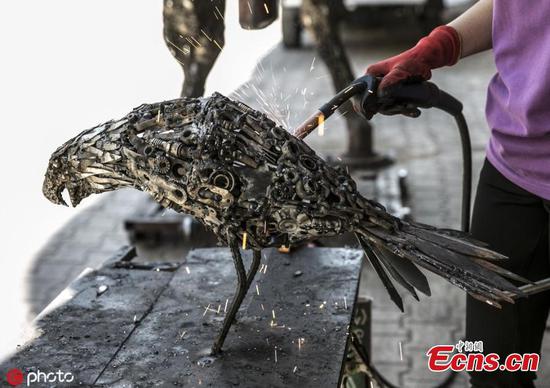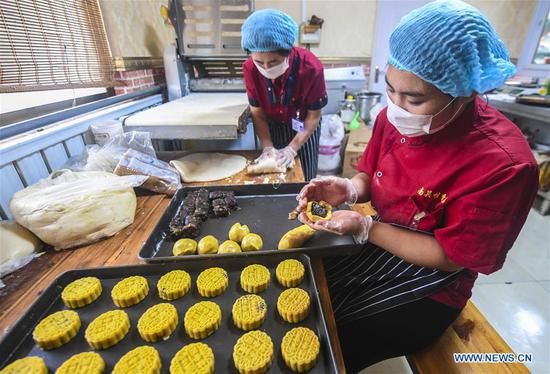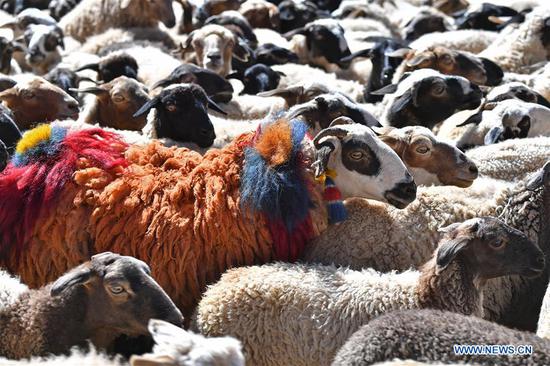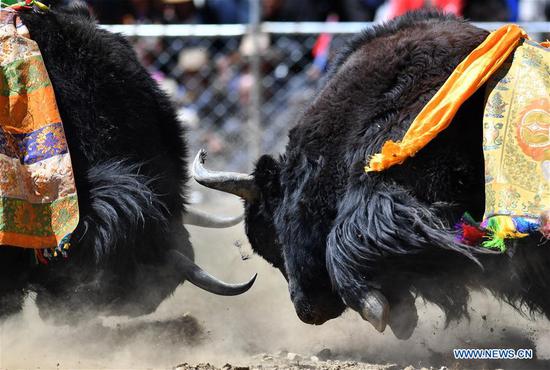Giant panda Mei Xiang has been experiencing a pseudopregnancy over the past several months and will not give birth this year, the Smithsonian's National Zoo in Washington, D.C. announced on Wednesday.
The hormone levels of Mei Xiang, who was artificially inseminated in March, are "at baseline levels and her behavior is slowly returning to normal" while veterinarians have not detected a developing fetus on any ultrasounds, according to an update provided by the zoo.
The panda team had tracked Mei Xiang's behavior closely for the past several weeks, watching for specific behaviors associated with pregnancy and pseudopregnancy, which can last between three and six months.
"Mei Xiang's denning behaviors will decrease, and keepers expect her to return to her normal routine within a few weeks," the zoo said.
Mei Xiang, 21, has given birth to three surviving panda cubs with her mate Tian Tian, all of which were born at the zoo.
Her first cub, Tai Shan, was born in 2005 and now lives in China. Her second cub, Bao Bao, was born in 2013. Bao Bao moved to China in 2017. In 2015, she gave birth to her third cub, Bei Bei, who is expected to move to China sometime in the coming months.
The zoo said that it had received approval for its breeding plans from the China Wildlife and Conservation Association and the U.S. Fish and Wildlife Service which monitors giant panda research programs in the United States.
The latest census in 2014 found there were 1,864 giant pandas alive in the wild, up from 1,114 decades ago. The number of pandas bred in captivity reached 548 globally as of last year, according to China's National Forestry and Grassland Administration. Enditem




















































